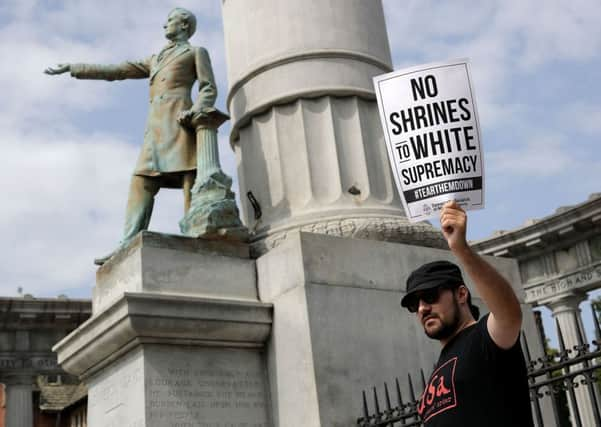Book review: Varina, by Charles Frazier


Another, even more contemporary account was Little Warrior by Giuseppe Catozzella, which told the devastating tale of Samia Omar, a young Olympic athlete from Somalia who died while making the journey to Europe to escape persecution in her homeland.
The latest book in this genre is the long-awaited new work by Charles Frazier, author of Cold Mountain, the American Civil War novel made into a hit film starring Nicole Kidman and Jude Law. Varina is also set at the end of the Civil War and tells the tale of the woman who became the second wife of Jefferson Davis, the only president of the Confederacy – the collection of 11 Southern states which seceded from the United States between 1861 and 1865. Along with other “heroes” of the Confederacy, recommendations were made by a commission earlier this year that a statue of Davis in Richmond, Virginia, should be removed.
Advertisement
Hide Ad“Being on the wrong side of history carries consequences,” Frazier tells us. “V lives that truth every day.”
Varina, as the novel reveals, was a thoroughly modern and intelligent woman. In real life, she later became a newspaper columnist and sought to reconcile prominent figures of the North and South. We meet this older, wiser Varina at the start of the novel, when, as an elderly woman, she is visited by a black man who turns out to be Jimmie Limber, a young boy who Varina adopted briefly as one of her own as a young woman.
In this, only his fourth novel, Frazier’s writing is, as ever, spectacular in places. However, it is marred by the lack of speech marks around direct speech. A device used by Hilary Mantel and continued by the likes of Sally Rooney
in her recent novels Conversations With Friends and Normal People, the technique gives a feel of internalising dialogue and creates a casual air. For Rooney’s characters, the lethargic teenager tone seems to work, but in this novel I found it distracting.
Sometimes speech is marked out by a long dash; at other times, it is just run into the prose: “V looked to the women and said, Are your people all right?” It feels as if the author has simply forgotten to add them in – or worse, is a teenager used only to communicating by instant message, where such niceties are invariably omitted. I know, I sound like my own grandmother, but please, can we just stop? - JANE BRADLEY
Varina, by Charles Frazier, Sceptre, £20